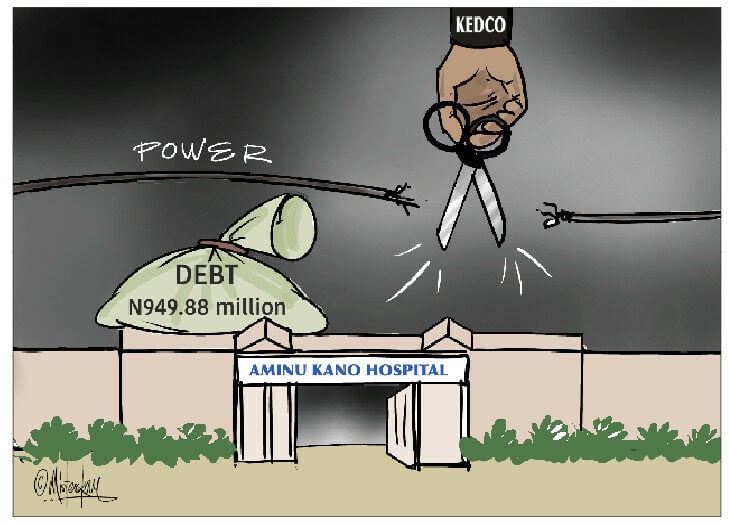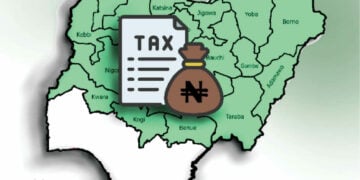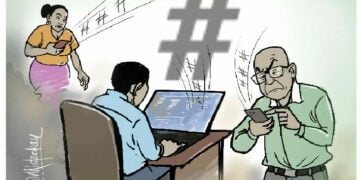It is troubling that in Nigeria, death by whatever means has become so normalised that we hardly bat an eyelid anymore. But what does one expect from a country that is ranked sixth on the 2025 Global Terrorism Index, earning its famed place among the ten most terrorised nations worldwide and recording more than 560 killings in 2024 alone?
In a country where bandits, terrorists, and criminals continue to kill with impunity, the outrage over three lives lost inside a hospital could be dismissed by some as the wailing of unrepentant wailers. Talking about wailers, I apologise to a senior colleague who once used that expression to describe Nigerians who criticised the late President Muhammadu Buhari’s administration.
But the outrage over the avoidable death, in Aminu Kano Teaching Hospital, of three persons when the Kano Electricity Distribution Company (KEDCO) disconnected power, cannot and should not be taken as mere ranting of wailers. No, it should not. The murder, for yet another time, is indicative of the terrible nature of our health system. Even for this reason alone, it should concern every well-meaning Nigerian.
After all, in his poem No Man Is an Island, John Donne reminds us that any man’s death diminishes us all. These three Nigerians entered a hospital in search of health and life, but they were left with neither because KEDCO disconnected the hospital’s power supply.
KEDCO switched off power over debts totalling ₦949.88 million as of August 2025, with the hospital’s bill for that month alone standing at ₦108.95 million. Three people died because of this disconnection. Three lives wasted because of a failed system.
Suffocating power bills
The death of three at a Kano Hospital came a few days after stakeholders in the health sector converged in Abuja for a national dialogue on power in the health sector, where they decried how the cost of electricity is crippling operations in hospitals. The revelations from this meeting were startling.
Minister of State for Health and Social Welfare, Dr. Iziaq Salako, told stakeholders during the meeting that tertiary hospitals across the country spend as much as ₦180 million monthly on electricity. Salako, who should know, said federal tertiary health institutions spend about 50 per cent of their operating expenses on fuel purchases. A straightforward way of describing this expenditure is that it is unsustainable.
Private hospitals are not faring any better. A survey by the Healthcare Federation of Nigeria revealed that private hospitals spend an average of ₦20 million monthly on power. Is this sustainable? What is the impact on accessibility and affordability of healthcare services? How does this affect the quality of treatment Nigerians get at the hospitals? If hospitals spend this much to keep the lights on, how can healthcare be affordable, accessible, or quality?
It is clear that what occurs in most hospitals, including those funded from the public purse, is poor service delivery. Nigerians, especially the poor and vulnerable who have no choice, are contending with inadequate access to healthcare services in the midst of compromised treatment quality. The outcome? Loss of lives.
Data on the state of power supply in the health sector showed that more than 40 per cent of primary healthcare centres nationwide lack electricity. The ones fortunate enough to have power get less than five hours of supply daily. And you wonder what sort of services Nigerians can access from a medical centre in perpetual darkness.
This deplorable state of power supply to not just health institutions but also our schools has underscored the need for a power subsidy in these critical sectors. Health, education, and agriculture have broader security implications. No responsible nation plays with these critical sectors by leaving them at the mercy of market forces. That is why governments in all serious nations worldwide offer some forms of subsidy in these sectors. Nigeria cannot be an exception.
Long wait for power subsidy
In August 2024, Minister of Power Adebayo Adelabu assured Nigerians that the government would subsidise the power supply in health and educational institutions.
Curiously, one year after the pledge, the government has yet to match its words with actions. Nothing has changed, and these institutions are struggling to navigate the huge power bills even as patients pay with their lives. Had the government intervened, and promptly too, the three lives lost in Kano Hospital, and perhaps many others that the nation may not even be aware of, would have been saved.
But what is the status of Nigeria’s power supply? A nation of over 200 million people, Nigeria currently generates approximately 5,400 megawatts of electricity. This is inadequate. A 2022 report on total energy supply per capita in Africa shows that Nigeria is not among the top ten, despite the country’s vast natural resources. Leading the list were Libya, Gabon, South Africa, Algeria, and Egypt, among others.
The lack of a stable power supply is one of Nigeria’s most significant infrastructure challenges. It stifles the growth of businesses, especially small and medium enterprises that depend on reliable electricity to thrive.
Despite being blessed with enormous gas reserves that could be used to generate electricity, Nigeria is among the countries where many people have no access to reliable electricity. Approximately 86 million Nigerians do not have access to power.
Bigger rot
Behind the numbers lurks a bigger rot. The story of Nigeria’s power sector is riddled with corruption. Over the years, billions of naira have been allocated to improving electricity supply, yet much of this money is either mismanaged or outrightly stolen.
The consequences of this inefficiency are dire. Industries are shutting down due to high energy costs, and foreign investors remain hesitant to invest in a country with an unpredictable power supply.
This deplorable power supply situation has continued to negatively impact service delivery in the health sector, pushing those who have the means to seek medical services outside the country.
The Punch reported in January 2025 that Nigerians spent about $2.39m or N3.7bn on foreign healthcare-related services from January to September 2024.
It is disconcerting that Nigerians spend this much on medical tourism, further enriching hospitals in foreign lands when such funds could have been expended in the country to help boost the local hospitals. But nobody likes to risk their life in seeking medical care in a nation where basic infrastructure is lacking in the hospitals.
Why should Nigerians who have the means not seek medical care outside when there is every likelihood that a patient’s life could be lost under vexatious circumstances like the one witnessed at the Aminu Kano Teaching Hospital? What happened at the Kano hospital is murder, pure and simple. Nigeria has failed those patients just as it continues to fail many of its citizens every day.
I Don’t Envy Gov Fubara
For Governor Sim Fubara of Rivers State, the real question is not if he will defect to the ruling All Progressives Congress (APC), but when. His political future looks foggy. With all but three local government councils now in the hands of the APC, no thanks to the controversial local government elections, and without a firm grip on the PDP structures in the state, his options appear narrow. The most viable path before him is to join the APC, if only to secure the federal government’s backing. Even that is not a guarantee because whether Fubara joins the APC or not, I don’t see him wielding firm control over Rivers State for the remaining part of his tenure. I don’t envy him at all.





